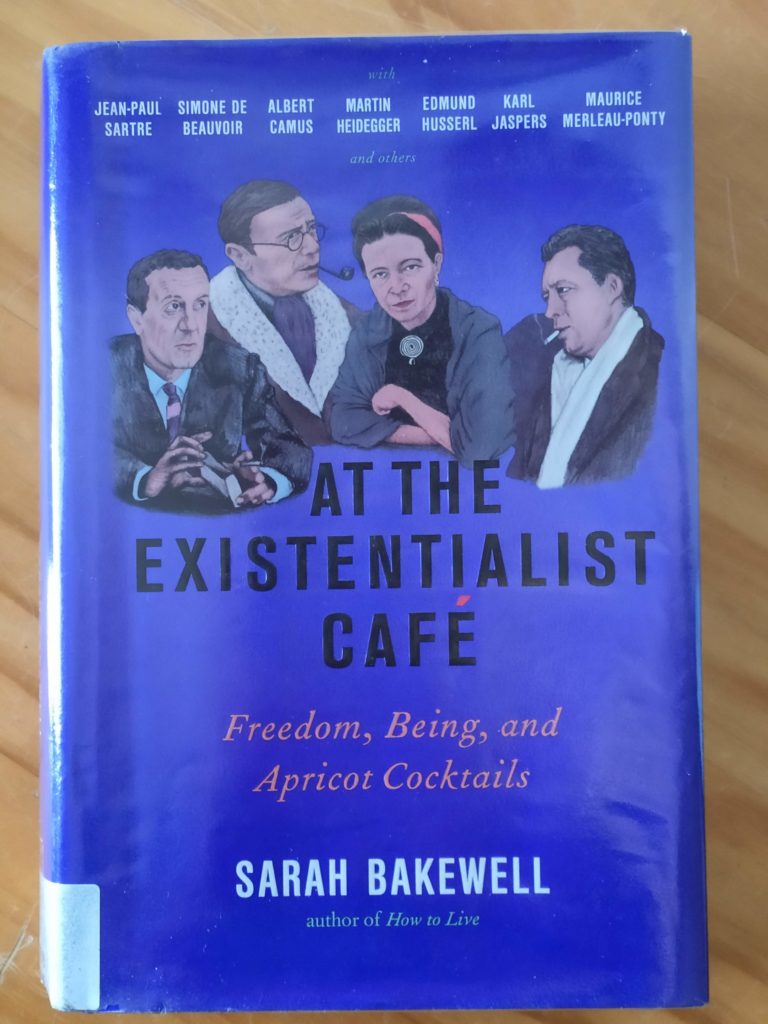
This is an excellent and wide-ranging description of the genesis of existentialism. It includes descriptions of all the major figures you have heard of, like Sartre, de Beauvoir and Camus, and further back to the likes of Heidegger and Nietzsche and many many more. After reading this I feel I have a much better idea of these people as people, rather than abstract ideas or buzzwords. Although mostly, I would rather just know their ideas since it seems they weren’t all the nicest people. It’s interesting to read about the long and fraught relationships that (maybe) helped shape their thought.
Most interesting to me is the low-key star of this book: Maurice Merleau-Ponty. The way Bakewell tells it, he was one of the most thoughtful, perceptive and level-headed of the existentialists. Perhaps if he had had a snappier name he would be as much of a household name as Sartre. Well, I will be reading up a bit more on Maurice M-P (that’s better) as his insights seem like they might be a bit more analytical in nature, which is probably more in my line.
Aside from MMP (even better!), Bakewell also uncontroversially cites Simone de Beauvoir as an underrated existentialist. Obviously she was a woman in an even more sexist time than the present, and she was strongly associated with the very famous Sartre — she probably was widely perceived as his muse rather than a thinker in her own right. Like MMP, perhaps her slightly cumbersome name didn’t help, although it does trip off the tongue a bit more smoothly than his. Anyhow, I think her philosophical stature has been reformed these days, so I will also be adding The Second Sex and maybe one of her novels to my comically long reading list.